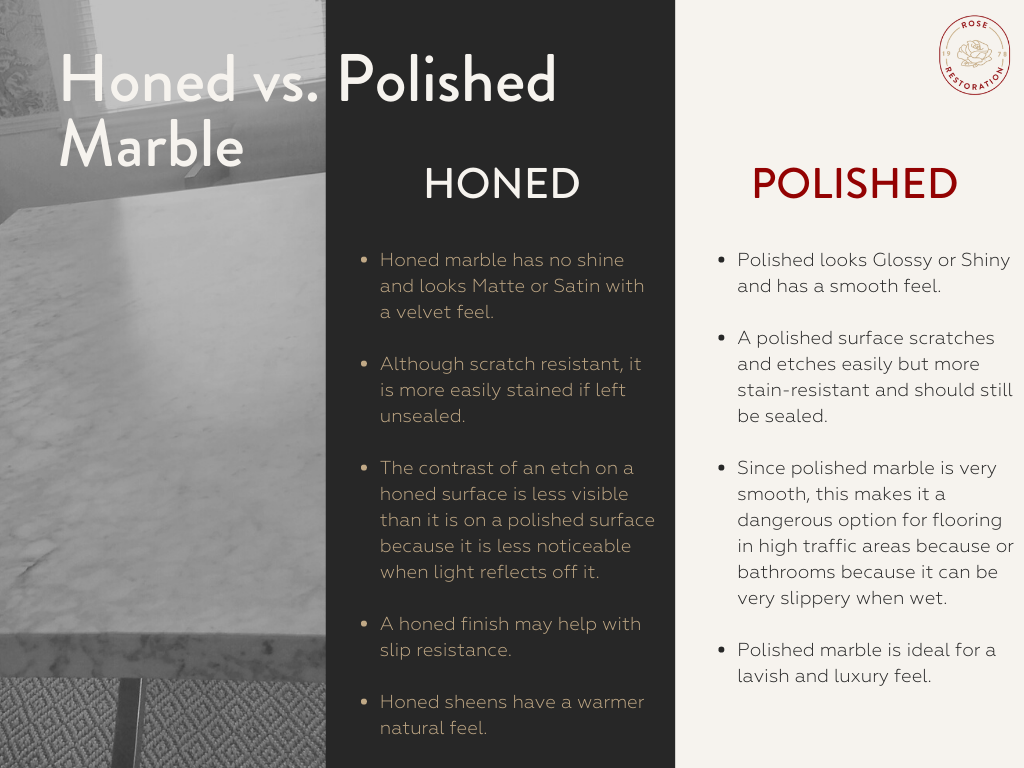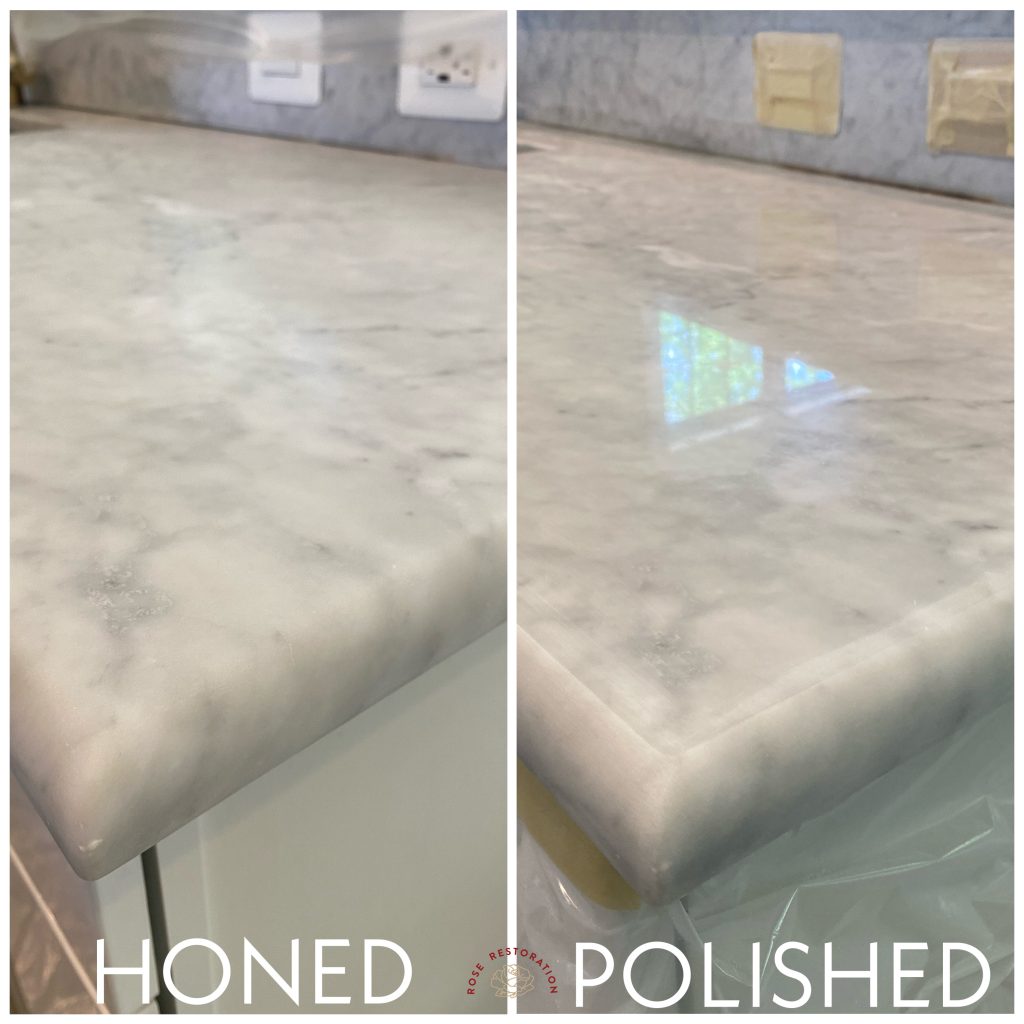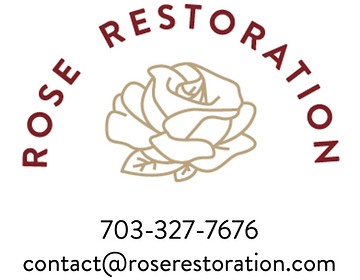When restoring your marble floor, countertop, or vanity, you’ll have the option to choose between a honed or polished finish. If you’re uncertain about the differences between honed and polished marble, you’ve come to the right place for clarity. Let’s compare honed and polished finishes to help you choose the ideal option for your stone, design, and personal preference.

Understanding Honed Finish: A Closer Look
A ‘honed’ finish gives the stone a matte or satin appearance, smoother and less shiny than polished stone.
To get a shiny finish, the stone needs extra polishing to make it reflect light beautifully and have a high shine. This results in a shiny, high-gloss surface that reflects light beautifully.
The process of stone restoration involves several steps. First, we clean and prepare the stone. Then, the stone undergoes treatment using a series of diamond abrasive pads and powders, gradually creating the desired finish. Finally, we seal the stone with a protective coating, typically using a silicone impregnator.

What is a Polished Finish?
Polished marble has a shiny finish because it’s polished with fine abrasives. These abrasives remove any flaws that could dull the surface, allowing light to bounce off more easily. Polished marble often appears slightly darker in color compared to honed marble of the same type.
All polished marble begins with a honed finish. After honing, we sand the marble with finer metal diamonds to remove surface flaws and make the marble as smooth as possible.
Does a Honed Surface Absorb Liquid More Than a Polished Surface?
Typically, either finish, when properly sealed, will resist staining to the same degree. A honed finish, if sealed, may be more prone to absorption. Therefore, it’s crucial to keep your honed stone sealed.
In certain stones, the polishing process refines the surface and closes the pores, making it less absorbent. This refinement aids in the surface’s resistance to dirt and foreign matter.
Will Honing My Shower Floor Make It Less Slippery?
Yes, in a wet environment, a honed finish may help with slip resistance. Other methods can achieve this on a shower floor besides honing. Opting for a polished shower floor is another viable choice.
Improperly applied sealers, coatings, and cleaning chemicals can create a slippery and dangerous situation. If your floor is slippery, stop using it and consult a professional for service.

Are Polished Floors Safe?
Yes, properly polished floors are slip-resistant and can pass a slip test whether wet or dry. However, a wet polished floor can be dangerous, and there are many ways to make it slippery. These include sealers, coatings, crystallizers, improper polishing methods, cleaning chemicals, etc. This is why it is important to have a professional treating and cleaning your floors.
Do Honed Tops Have an Advantage Over Polished?
Honed finishes, with their matte appearance, offer better scratch and slip resistance. This makes them ideal for high-traffic areas and for achieving a natural aesthetic.
Polished finishes provide a glossy look and offer better stain resistance. This makes them ideal for formal spaces where visual impact is important. However, they can pose a slipping hazard when wet.

Honed Marble Countertops and Tile: A Timeless Choice
Honed marble countertops and tile offer a matte finish that is smooth to the touch.
To achieve this finish, the marble is ground to a flat, even surface, and then marble polishing pads are used to achieve the desired level of shine. Honed marble tile is a popular choice for kitchens and bathrooms, as it provides a more natural look compared to polished marble.
For stone care tips, kitchen design trends, countertop surfaces, bathroom restorations, and more, contact the Rose Restoration team today. We offer a free estimate for your kitchen or bathroom restoration project, whether you prefer countertops honed or polished.


